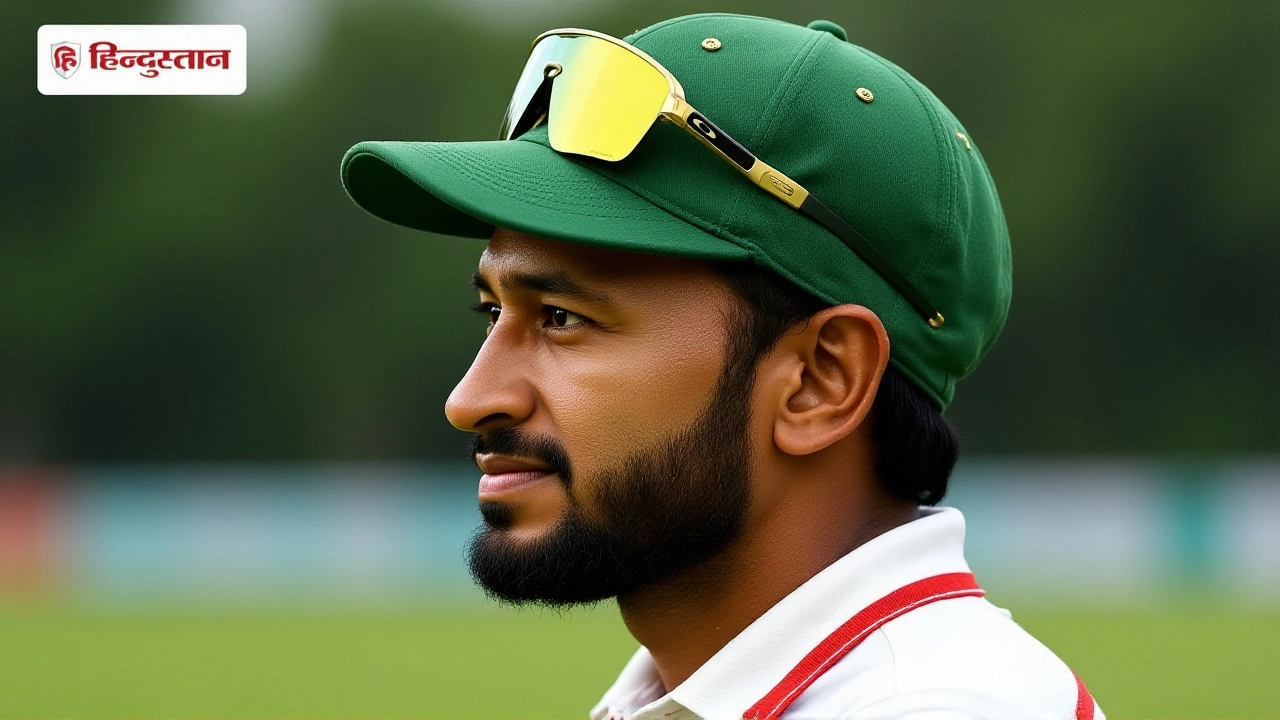On a humid Thursday afternoon in Dhaka, as the sun dipped behind the stands of the Sher-e-Bangla National Stadium, a quiet roar swept through the crowd—not from a six, not from a wicket, but from a single run. Mushfiqur Rahim, 38, had just reached his 100th Test match, and with it, history. Facing Ireland on November 20, 2025, the veteran wicketkeeper-batsman slapped a delivery from Matthew Humphries through square leg for a single, completing his 106-run innings in his 100th Test. The stadium erupted. For the first time in cricket’s 148-year history, a Bangladeshi had crossed the 100-Test mark—and done so with a century.
A Century Against the Odds
Mushfiqur Rahim didn’t just reach 100 Tests—he made it count. After ending day one on 99 not out, he walked out on day two under the weight of expectation. The first over? Maiden. The second? He took a single off Jordan Neill’s third ball. No fireworks. No celebration until the run was complete. Then, the applause. It wasn’t just noise—it was reverence.
His innings, 106 off 214 balls with five fours, was a masterclass in patience. No brute force. No reckless strokes. Just technique, timing, and the kind of mental discipline that comes from 183 innings across two decades. He was eventually dismissed by Humphries, but the damage was done. By lunch, Bangladesh had posted 387 for 5, with Litton Das adding his own century. The scoreboard told one story. The atmosphere told another: this wasn’t just a match. It was a coronation.
Only the 11th in History
Only 11 batsmen in the 148-year history of Test cricket have scored a century in their 100th match. Colin Cowdrey of England was the first, back in 1964. Then came legends—Sachin Tendulkar, Jacques Kallis, Rahul Dravid. And more recently, David Warner, who smashed 200 against South Africa in Melbourne in 2022. For three years after Warner, no one matched the feat. Then came Mushfiqur. And he did it on home soil, in front of a nation that had watched him grow from a skinny 18-year-old debutant in 2005 to its most enduring Test figure.
His numbers tell the tale: 6,457 runs at 38.43, 13 centuries, 27 fifties. He wasn’t always the flashiest. He wasn’t always the captain. But he was always there. For 20 years. Through losses, rebuilds, and the slow, painful climb of Bangladesh from minnows to Test contenders.

A Nation’s Pride
“Mushfiqur Rahim hasn’t just added a chapter to his career—he’s rewritten the story of Bangladeshi cricket,” said Bangladesh Cricket Board president Nazmul Hassan. “He’s the first from our country to play 100 Tests. That’s not just an achievement. It’s a legacy.”
The BCB didn’t just mark the occasion—they built it. Special seating for his family. A tribute video before play. A ceremonial bat presented to him on the field. And after the innings, the entire Irish team stood and applauded as he walked off. Captain Andrew Balbirnie called it “a moment that reminds us why Test cricket still matters.”
Even the Prime Minister of Bangladesh, Sheikh Hasina, called him personally. “Your dedication has made the whole country proud,” she told him, according to officials. No politician in Bangladesh had ever called a cricketer directly after a match—not even after World Cup wins.
What Comes Next?
Now, the BCB has announced a permanent tribute: a commemorative plaque bearing Mushfiqur’s name, signature, and the date of his 100th Test century will be installed at the Sher-e-Bangla National Stadium. His jersey number, 7, may soon be retired in Tests. And his name? It’s already etched in the record books beside Bradman, Lara, and Sangakkara.
His coach, Chandika Hathurusingha, put it best: “He didn’t just bat for runs. He batted for meaning. For the next generation, he’s proof that longevity isn’t about talent alone—it’s about heart.”

Why This Matters Beyond Bangladesh
In an era dominated by T20 leagues and franchise cricket, where Test matches are often treated as inconvenient obligations, Mushfiqur’s century was a quiet rebellion. He didn’t chase fame. He didn’t chase money. He chased consistency. He played 100 Tests while many of his contemporaries switched to the shortest format. He stayed. He endured. He excelled.
His achievement isn’t just about Bangladesh. It’s about the soul of Test cricket. It reminds us that greatness isn’t always loud. Sometimes, it’s the quiet man at the crease, waiting for the perfect ball, playing the perfect shot, after 20 years of sacrifice.
Frequently Asked Questions
Who are the other players who scored a century in their 100th Test match?
Only 10 players before Mushfiqur Rahim achieved this feat. Colin Cowdrey (England, 1964) was the first. Others include Sachin Tendulkar, Jacques Kallis, Rahul Dravid, Ricky Ponting, and David Warner (2022). Warner’s 200 against South Africa remains the highest score in a 100th Test. Mushfiqur is the 11th and the first from a Full Member nation outside the traditional cricketing powerhouses.
How significant is it for a player from Bangladesh to reach 100 Tests?
Extremely. Before Mushfiqur, no Bangladeshi had played 100 Tests. The country only gained Test status in 2000. Reaching 100 matches requires sustained excellence, fitness, and selection over two decades—a rarity in a team that’s often rebuilding. Only 11 players globally have done it, and Mushfiqur is the first from a team that wasn’t among the original Test nations.
What records does Mushfiqur Rahim hold in Bangladeshi cricket?
He’s Bangladesh’s highest run-scorer in Test cricket (6,457), most centuries (13), most Test matches played (100), and most dismissals by a Bangladeshi wicketkeeper (334). He’s also the only Bangladeshi to captain the team in over 50 Tests. His 100th Test century makes him the first from his nation to score a century in his 100th Test—a milestone no other Asian player outside India has achieved.
Why did he wait until his 100th match to score his first century?
He didn’t. He’d already scored 12 centuries before this. But this was his first century *in his 100th Test*. That’s the rare distinction. Many players score centuries early and often. Few reach 100 Tests. Even fewer do both. His 106-run knock wasn’t his first century—it was his first century *at this milestone*, which is what makes it historic.
What’s next for Mushfiqur Rahim?
He hasn’t announced retirement. With his form still strong and Bangladesh scheduled for more Tests against England and South Africa in 2026, he may play on. But his legacy is already secure. The BCB has hinted at a testimonial series in his honor, and a documentary on his career is in early production. His name will now be part of every cricket history textbook in Bangladesh.
How does this compare to other milestones in cricket history?
Scoring a century in your 100th Test is rarer than 300-run innings or 10-wicket hauls. Only 11 have done it. For context, over 1,000 players have played 100 Tests, but only 11 have scored a century in that exact match. It’s a blend of longevity, skill, timing, and luck. Mushfiqur joins a club that includes Don Bradman (though he never reached 100 Tests) and modern icons like Kumar Sangakkara. For a nation like Bangladesh, it’s the equivalent of a first moon landing.
